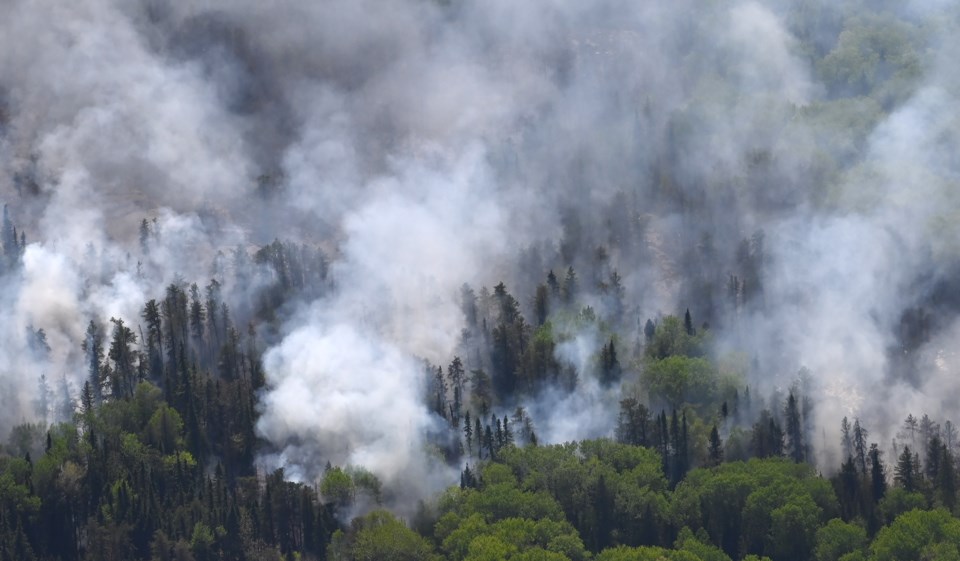DEER LAKE – The wildfire near Deer Lake has been growing rapidly as evacuation proceeds in the fly-in community, a fire information officer said Thursday.
Chris Marchand told Newswatch the fire dubbed Red Lake 12, reported to be 100 hectares in area Wednesday, had expanded to more than 7,000 hectares by early Thursday afternoon.
“On the afternoon of May 28 … a fast-growing fire was reported near the airport just north of the community of Deer Lake,” said Marchand.
“CL-415 water bombers that were stationed in Red Lake were dispatched within minutes and worked to reduce that fire’s intensity until dark.
“An air attack has already resumed again this morning on that fire, which is showing some very active fire behavior.”
Marchand said Red Lake 12 “expanded in a northeasterly direction away from the community, pushed by winds from the west (on Wednesday).”
Deer Lake chief and council “have requested a phase 1 evacuation of vulnerable persons,” he said.
A spokesperson for the Ministry of Emergency Preparedness and Response said by email Thursday the ministry “is actively coordinating with community leadership, the Ministry of Natural Resources and Indigenous Services Canada to support the safe evacuation of vulnerable residents from Deer Lake First Nation.”
Evacuees will be hosted in the Toronto region and “receive full wraparound support services” while there, the spokesperson said.
The blaze will have approximately 35 firefighters assigned to it by day’s end on Thursday, Marchand said.
“Presently in the community, we have five fire ranger crews that are making some progress with suppression that’s adjacent to the airport, where the fire originated, on the edges of the fire that are nearest to the community, as well as protecting some infrastructure buildings around the airport with sprinkler systems,” he said.
“An additional three crews are in-bound to Red Lake 12 this morning.”
The fire’s fast growth can be attributed largely to weather conditions being ripe for “very significant fire escalation,” he said.
Northwestern Ontario has seen “almost drought-like conditions” this month, he said, “and we have no appreciable meaningful rainfall in the forecast.”
The busy 2025 fire season in Northwestern Ontario has included two fires near Wabaseemoong Independent Nations, which was evacuated earlier this month and remains evacuated.
One of those fires, Kenora 20 west of Wabaseemoong, has grown to 34,000 hectares and is classified as not under control.
According to the MNR’s fire update site, the Kenora 14 fire north of Wabaseemoong “is currently being held at 1,607 hectares in size.”
The MNR has expanded its restricted fire zone in the region to include areas from the Manitoba border to the Nipigon-Red Rock area and from the U.S. border north to Cat Lake.
In those areas, campfires and other open-air burning are prohibited.
“Portable gas or propane stoves may be used for cooking and warmth, but must be handled with extreme caution,” a news release from the ministry said.
